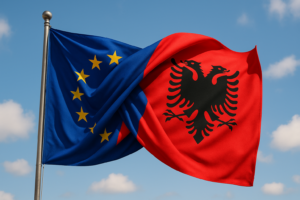Headquarters: Svetog Nauma 7, 11000
Office address: Đorđa Vajferta 13, 11000
Phone:: +381 11 4529 323

He served in the Caucasus, where he acquired the cross which he was especially proud of because at that time under his leadership Russian peasants, shaved and dressed in uniforms and armed with rifles with bayonets, killed more than a thousand people defending their freedom and their homes and families.
L. N. Tolstoy
“Sir, this is worse than a crime, this is a mistake”, said the cynical prince Talleyrand, the foreign minister of all French regimes – from revolution to restoration – to the then first consul Napoleon, after he ordered the execution of the Bourbon prince, Duke of Engen. It is unlikely that the current ruler in the Kremlin could have his Talleyrand who would point out to him the catastrophically bad consequences of the decision to invade Ukraine on February 24, 2022, which turned the entire geopolitics of Europe upside down, returned more than half a century backwards, while Russian long-term interests are drastically compromised in various ways. The one who could play Talleyrand’s role in terms of both function and wisdom would be Russian Foreign Minister Lavrov. The question is, however, how the Russian minister would have behaved if he had openly announced to his boss the logically expected consequences of a poorly thought-out “special operation”, including:
In a noteworthy text from 2018, Putin’s adviser at the time, V. Surkov, announced that, as a consequence of the annexation of Crimea and the conflict in Donbas, Russia was entering a period of “one hundred or more hundreds of years of geopolitical loneliness.” Surkov also stated that the efforts to make Russia a part of Western civilization have been completed and that the only remaining Russian friends are “the army and the navy”. However, even in the darkest futuristic vision, V. Surkov could hardly have predicted the extent of Russia’s strategic failure and military tactical complications during the first three months of fighting in Ukraine, the consequences of which Russia is likely to feel and suffer for generations.
But the future is known to be difficult to predict. History is sometimes extremely whimsical- sometimes in a positive sense. Thus, the greatest and most unpredictable “miracle” in recent history was the peaceful end of the Warsaw Pact and the Soviet Union in 1991. No one could have predicted the almost complete disintegration of the system which, until Gorbachev came to power in Moscow, was ruled with an iron fist, repression and countless victims. But it is as if miracles have their own duration – at least when it comes to geopolitical events. The harsh wind of reality in the form of innate human aggression is always lurking. The current Russian intervention in Ukraine acts as a kind of new version of what could have been expected during the collapse of the USSR three decades ago: an explosion of destruction, a flood of blood and tears – like the war in the former Yugoslavia.
By its actions towards Ukraine and questioning the sovereignty of recognized states and long-recognized borders, Russia turned its back on Europe for the third time in a hundred years. It happened for the first time after the October Revolution in 1917 when the coming to power of the Bolsheviks conditioned the long-term international isolation of the country from where the world revolution was to spread. The USSR was included in the League of Nations only in 1934, only to be expelled from it again (like Russia was from the Council of Europe today) five years later – due to the attack on Finland. After the alliance during World War II, as early as 1945 during the Cold War, the USSR and its eastern allies created a new world and society separated by an iron curtain from the rest of Europe. With the fall of the Berlin Wall in 1989, the conditions were symbolically created for Europe to finally become “peaceful, united and free”. But that never came true.
At the beginning of the Cold War, a British diplomat briefly summarised the geopolitical goals of European military cooperation and economic integration as follows: “Keep the USA in (Europe), the Germans (politically) down, and the Russians out”. With the Russian intervention in Ukraine, this formula is, by force of circumstances, at least partially in force again.